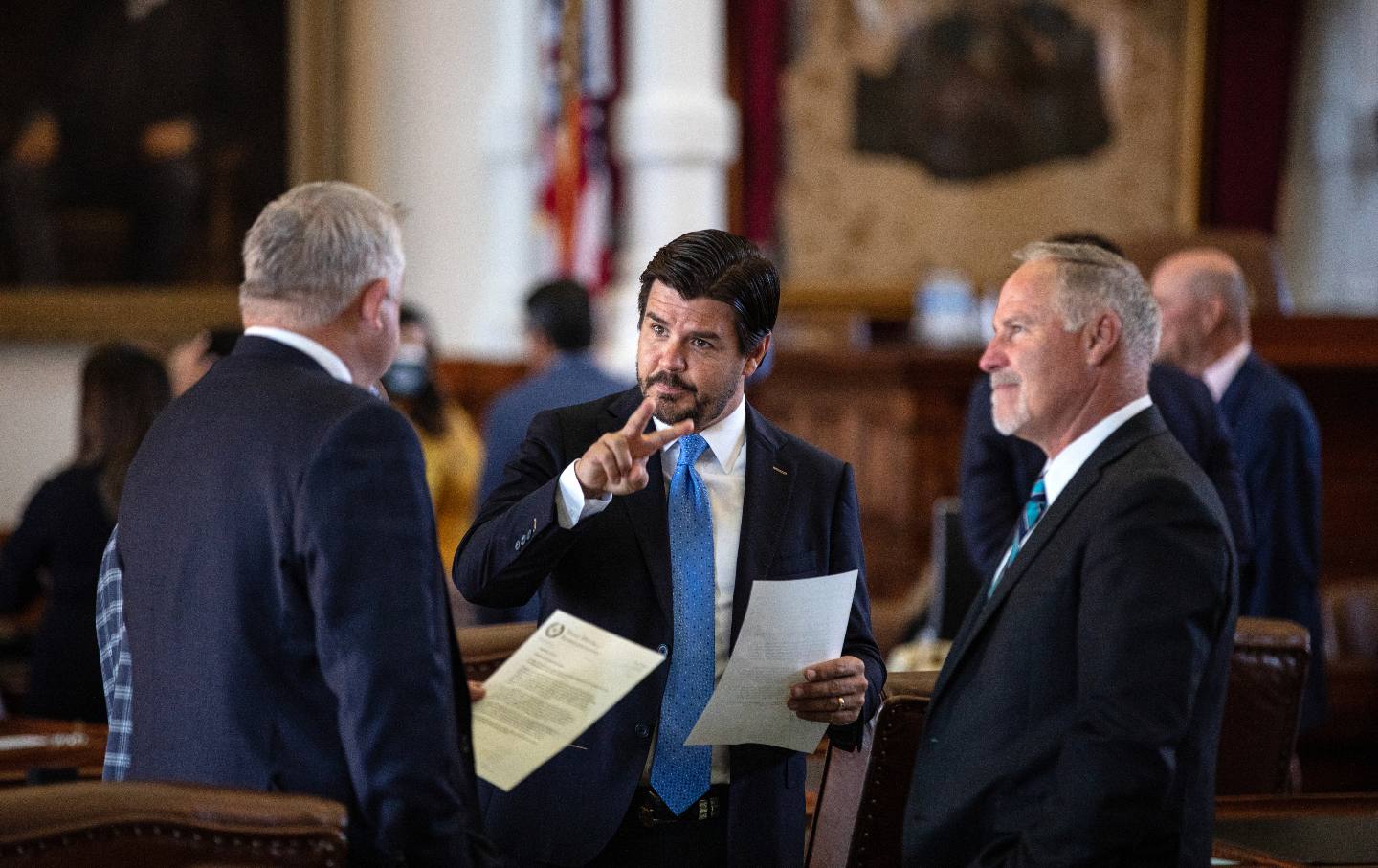Proposition 3 would prohibit the creation of a “wealth tax” in the Lone Star State, putting businesses and billionaires over the average citizen.

Texas state Representative Cole Hefner speaks to fellow state representatives in the House chamber.(Tamir Kalifa / Getty)
In November, Texas voters will decide on an amendment to the state Constitution known as Proposition 3. The amendment, approved by the Texas Legislature in May, would prohibit the creation of a “wealth tax” in the Lone Star State, including “a tax on the difference between the assets and liabilities of an individual or family.” In other words, Proposition 3 would prevent lawmakers from taxing the rich.
Texas has historically been friendly to the ultra-rich with the state Constitution forbidding an individual income tax. This year, over 45 Texans with a combined net worth of almost $700 billion—in industries like oil and gas, real estate, and tech—were listed among the Forbes ranking of the wealthiest Americans. The richest person in the world, Elon Musk, moved Tesla’s headquarters to Austin in 2021, complaining that California was the state of “overregulation, overlitigation, over taxation.”
Texas wants to be seen as a financial paradise, but when the rich boast about the state’s low taxes, they aren’t thinking about the working- or middle-class citizens. According to the Institute on Taxation and Economic Policy Tax Inequality Index, Texas has the second-most-unfair state and local tax system in the country after Washington. The lowest 20 percent of earners in the state—making less than $20,900 annually—pay the greatest proportion of their family income as taxes at around 13 percent. Yet the top 1 percent of earners—who make above $617,000 annually—pay only 3.1 percent. California, however, was listed as the fairest state, with the most progressive tax structure.
Politicians in Texas continually use false narratives pushed by the 1 percent to oppose the wealth tax, incorrectly claiming that it would harm the everyday voter. “House Joint Resolution 132 by Representative Cole Hefner takes a proactive step to ban the state from EVER imposing a wealth tax on its citizens, ensuring that Texans take home more of their hard earned paycheck,” writes Texas Insider. Yet, despite the amendment’s advocates’ arguments to the contrary, the states that have already implemented such laws have lower taxes on the average citizen than states that don’t.
This year, legislators in states from Connecticut to Washington have proposed a wealth tax. But more often than not, arguments against—like those being had by the Texas Legislature—fail to disclose who benefits. By prohibiting a wealth tax, Proposition 3 helps widen the existing gap between the rich and poor, giving corporations and billionaires another key advantage over the average citizen.
Read the rest of StudentNation’s dispatches on the 2023 election here.
Aina MarziaAina Marzia is a writer from El Paso, Texas, covering intersectional politics and a freshman at Princeton University studying Law, Politics, and Economics. Her work has been seen in The Nation, Teen Vogue, Business Insider, The New Republic, The New Arab, The Daily Beast, The American Prospect, and Grist, and on NPR and elsewhere.